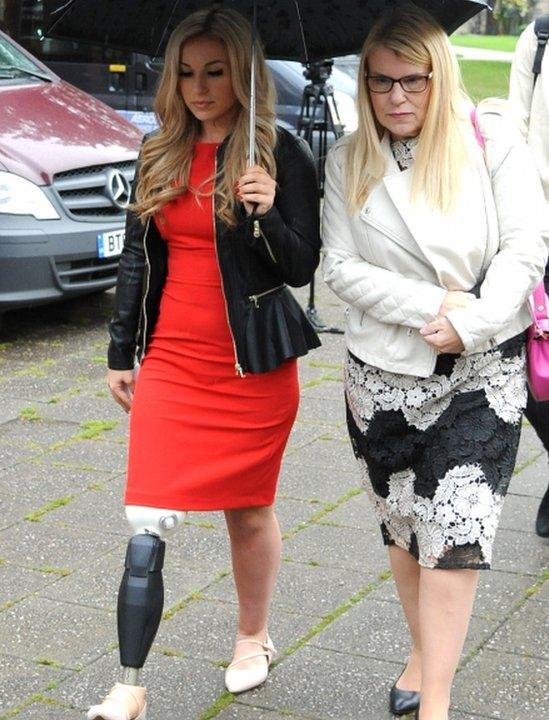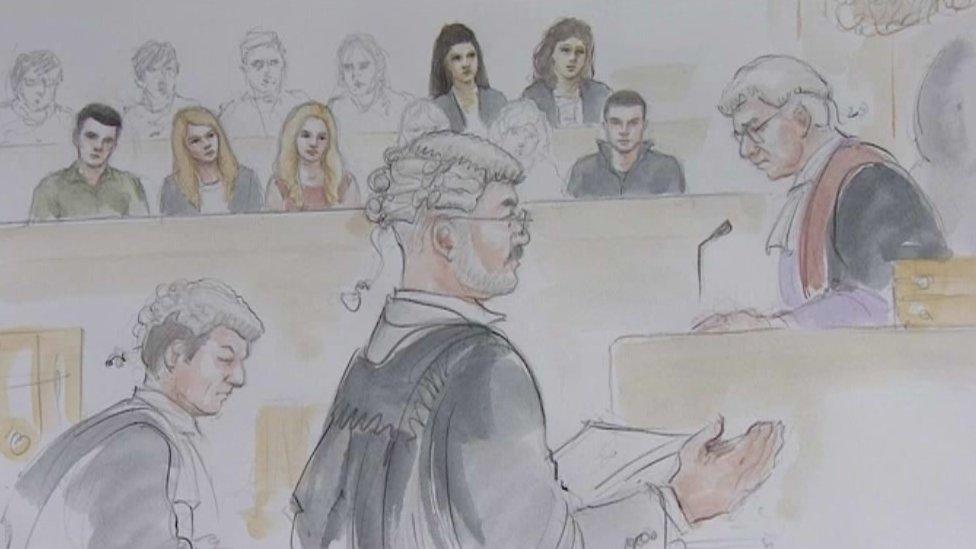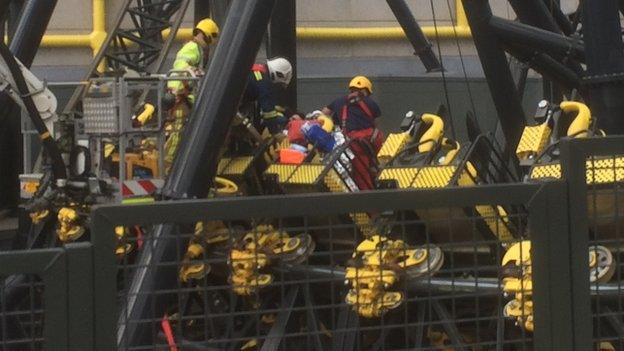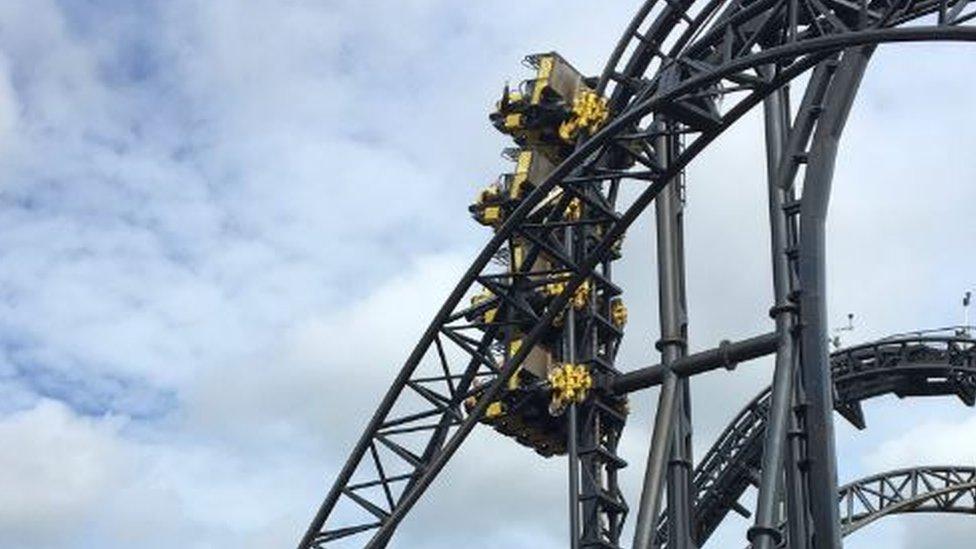Alton Towers sentencing: 'Operator Merlin at fault'
- Published
CCTV shows the moment the Smiler crashed at Alton Towers
A court heard Alton Towers operator Merlin Attractions was at fault for a crash on the Smiler rollercoaster ride as footage of the accident was released for the first time.
Two teenagers were left needing leg amputations, while several others were also seriously injured in the crash on 2 June last year.
An investigation found human error caused the crash.
Merlin has been warned to expect a "very large fine".

Vicky Balch, one of two women who needed a leg amputation, arrived at the hearing with her mother Karen (right)
Opening the sentencing hearing at Stafford Crown Court, barrister Bernard Thorogood, prosecuting for the Health and Safety Executive (HSE), said the crash equated to "a family car of 1.5 tons having collided at about 90mph".

•The £18m Smiler was the world's first 14 multi-loop rollercoaster with up to five trains running at any one time
•On 2 June four trains were operating on the ride; a fifth was stored away
•At 13:00 BST there was a problem with one of the trains; technical staff were called
•One of the engineers thought it was a good opportunity to add the fifth train because the park was busy
•An empty test train was sent but failed
•Engineers pushed the train until it engaged with the system and off it went
•Another empty train was sent out. It got stuck, too, but in a different place
•Engineers were unaware of this, thought everything was working fine and handed it back to operators
•The train with 16 passengers on was sent out and stopped
•The engineers looked but could not see the stalled car, thought the computer was wrong, and over-rode the stop. This set the 16-passenger train in motion and into the empty carriage

Mr Thorogood said a test carriage had been sent around the 14-loop ride but had failed.
'Fault with employers'
Engineers re-set the ride and overrode a computer system "block-stop" which they believed had halted the ride in error, sending a full 16-seater rollercoaster car around the track and into the empty carriage.
He said the "fault here is with the employers", not individuals.
The engineers were "without guidance from above", and had not been given a system to follow to safely deal with the problem on the track, he told the court.

Bernard Thorogood outlined the HSE's case to Judge Michael Chambers watched by some of the crash's victims
"The fault is with the defendant for not devising a scheme, for not guiding the work of the engineers," he said.
Wind speeds
The court heard how there were estimated winds on the day of 45mph. But the manufacturer's manual said the ride should not be operated at speeds above 34 mph.
Mr Thorogood said the victims were left for a "significant period of time" at least 20ft (6m) above ground, waiting for medical attention because of the inaccessibility of the ride.
He said those in the front row spoke of their "disbelief and horror" as they saw "the train into which they were going to dive" approaching.

Daniel Thorpe, Vicky Balch, Joe Pugh and Leah Washington were among those who suffered the most serious injuries
Engineers on the day had not read or seen the operating instructions for the ride, the barrister said.
During the prosecution, Mr Thorogood made repeated reference to an expert report compiled by Stephen Flanagan, who inspected rides for the HSE.
Parts of the report which were not read in court said management had set targets for downtime on rides "with bonuses linked to achieving acceptably low levels".
One of the engineers "felt pressure" to get the ride "quickly back into service" shortly before the crash, the report said.
The Recorder of Stafford, Judge Michael Chambers QC, said in passing sentence he would consider "not just the impact on those injured, but on those close to them."
In mitigation for Alton Towers, barrister Simon Antrobus said Merlin's top executives had accepted responsibility for the crash from the day it happened and apologised.
"(The company) accepts its responsibility that this should never have happened and accepted that the accident was attributable to failures that, while they were never intended, would have been avoidable with greater care," he said.
Mr Antrobus said Merlin ran more than 120 rides over 11 different sites and was "the most reputable operator in this field".
"It's a good organisation that made a serious failure, but is one that is of otherwise good character," he said.
Asked by the judge if anyone had resigned as a result of the crash, he replied: "No."
Mr Antrobus said Merlin accepted "inconsistency" in staff training was a failure, and that there had been "blind spots" in educating staff.
In April, Merlin admitted charges of breaching the Health and Safety Act.
Since the crash, a number of safety changes have been made including improved access and a policy of closing the ride when winds exceed 35mph.
- Published2 June 2015

- Published24 November 2015

- Published1 September 2016
